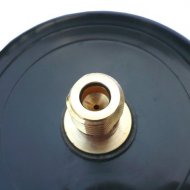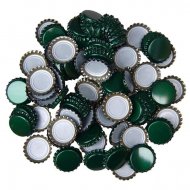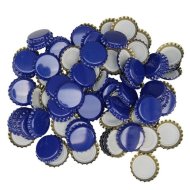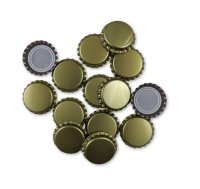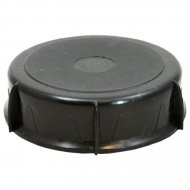Sign up to the Brew Mart newsletter for the latest news, offers & more
Please note that Brew Mart will be closed on Saturday, 5th July, AND Saturday, 12th July. Thank you.
Home Brewing Barrel Caps
Home Brewing Barrel Caps - What Are Barrel Caps?
Barrel caps are the closures used to seal the top of fermentation barrels, ensuring the contents remain contained while allowing for the necessary gas exchange. They come in various materials and designs, each serving its purpose in the brewing process.
Types of Barrel Caps
Plastic Caps. Plastic caps are often used for smaller fermentation vessels and are lightweight and easy to handle. They can be fitted with airlocks to allow carbon dioxide to escape and simultaneously prevent oxygen and contaminants from entering.
Barrel Caps come in two sizes, 2 or 4 inches in diameter.
The 2-inch barrel cap has three variants.
- Pressure Barrel cap with pre-cut hole. The hole accommodates the pin or S30 valves used when topping the CO2. This variant is ideal for those who want to control the carbonation level of their beer. You can buy these valves separately.
- Pressure Barrel Cap with a pin valve. The pin valve is for using the small Sparklets bulbs and bulb holder. You can buy these separately.
- Pressure Barrels Caps with S30 Valve. The S30 valve is a pressure relief and CO2 injection valve combined, compatible with the large S30 refillable CO2 cylinders. You can buy these separately.
The 4-inch barrel cap has four variants, the same as above, plus a Solid Cap with O Ring for use with the fermenter or barrel.
Importance of Using Barrel Caps
Using proper barrel caps is vital for several reasons:
Contamination Prevention. Caps help keep out unwanted microorganisms, dust, and debris that could spoil the brew. A good seal is crucial for producing high-quality beer.
Ageing and Flavour Development. For those who age their beers in barrels, the fitting cap can facilitate the slow oxygen exchange essential for developing complex flavours.
Maintenance and Care
After use, it’s essential to clean and sanitise barrel caps thoroughly.
You can do this by soaking the caps in a sanitising solution for a recommended period and then air-drying them. The residue left on caps can lead to contamination in future brews.
Inspection for wear and tear is essential. The Brass valves are long-lasting. However, any worn washes need to be checked and replaced.















